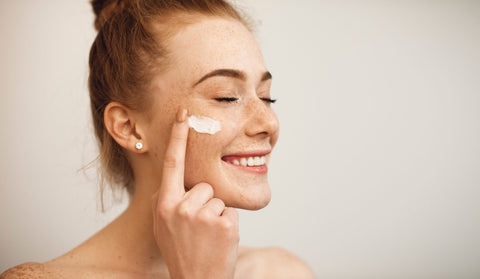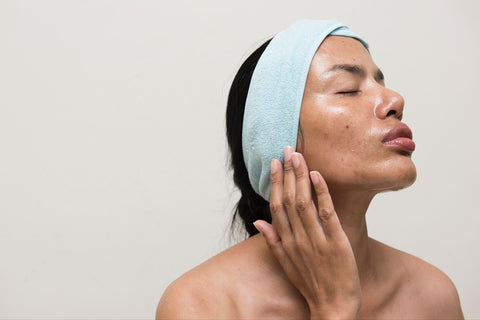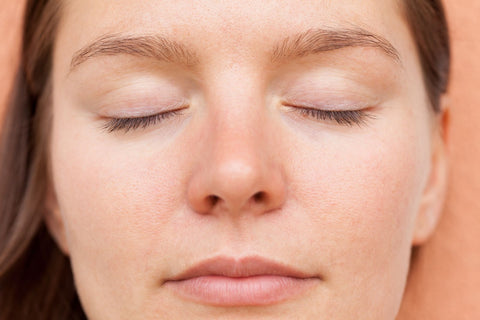Essential Skincare Routines for Every Skin Type
Navigating the world of skincare often feels overwhelming due to the sheer abundance of advice and products available. However, the key to an effective skincare regimen lies in understanding and catering to your skin type, whether dry, oily, combination, sensitive, or normal.
This comprehensive guide provides a detailed guide to help you identify your skin type and adopt a skincare routine that addresses its unique needs and challenges.
Whether your goal is to hydrate parched skin, control excess oil, soothe sensitivity, or maintain your skin's natural balance, this guide offers practical, tailored advice to enhance your skin's health and appearance. Let's embark on a journey to unlock the secrets of personalized skincare and transform the way you care for your skin.
Understanding skin types
When caring for our skin, it's important to understand that not all skin types are the same. Each person's skin is unique and requires different care to keep it healthy and glowing. Understanding your skin type is the first step in creating a skincare routine tailored to your specific needs.
There are five main skin types: normal, dry, oily, combination, and sensitive. Let's take a closer look at each one.
Normal skin
If you have normal skin, you’re lucky! This skin type is well-balanced, with small pores and few to no blemishes. Normal skin is neither oily nor dry, and it has good elasticity and a smooth texture.
Dry skin
Dry skin often feels tight and may appear flaky or rough. Genetics, aging, and environmental factors like dry air or harsh skincare products can all cause dry skin.
Oily skin
Individuals with oily skin tend to have larger pores and may be prone to acne and blackheads. This skin type produces excess oil, which leads to a greasy shine by the end of the day.
Combination skin
Combination skin is a mix of oily and dry areas. Typically, the T-zone (forehead, nose, and chin) is oilier, while the cheeks are drier.
Sensitive skin
Sensitive skin is prone to redness, irritation, and allergic reactions. It may also feel itchy or tight.
Now that you understand the different skin types, you can begin to create a skincare routine tailored to your specific needs. Remember to cleanse, moisturize, and protect your skin from the sun every day. With the right products and a consistent routine, you’ll keep your skin looking healthy and radiant, no matter what type you have!

Customized skincare routines
Customized skincare routines are essential for maintaining healthy and radiant skin. Everyone's skin is unique, and what works for one person may not work for another. That's why it's important to tailor your skincare routine to your specific skin type and concerns.
When it comes to customized skincare, the first step is to identify your skin type. As we mentioned earlier, there are five main skin types: normal, dry, oily, combination, and sensitive. Each type requires different products and ingredients to address its specific needs.
For example, dry skin may need heavier moisturizers and gentle exfoliants, while those with oily skin should look for oil-free products to control excess oil production.
Once you've determined your skin type, it's important to consider any specific skin concerns you may have. This could include issues like acne, hyperpigmentation, fine lines and wrinkles, or sensitivity. Tailoring your skincare routine to address these concerns will ensure that you are effectively targeting the issues that are most important to you.
One of the key components of a customized skincare routine is using the right products for your skin type and concerns. This means choosing cleansers, exfoliants, moisturizers, and treatments specifically formulated for your needs.
For example, someone with sensitive skin may benefit from using gentle, fragrance-free products, while someone with acne-prone skin may need to incorporate a targeted treatment.
In addition to using the right products, it's also important to consider the order in which you use them. A good rule of thumb is to start with the lightest consistency products and work your way up to the heaviest. This usually means starting with a cleanser, followed by a toner (if desired), then a serum, moisturizer, and sunscreen during the day or a night cream in the evening.
Customizing your skincare routine also involves paying attention to how your skin responds to different products and adjusting your routine as needed. If you find that a certain product is causing irritation or breakouts, it's important to stop using it and find an alternative that works better for your skin.
On the other hand, if you notice positive changes in your skin, you may want to continue using a particular product or ingredient.
Routine for dry skin
Dry skin is a pesky problem, causing flakiness, itchiness, and discomfort. But with the right skincare routine, you’ll keep your dry skin hydrated and glowing. Here are some essential steps to include in your daily skincare routine if you have dry skin.
First and foremost, it's important to use a gentle cleanser that won't strip your skin of its natural oils. Look for a cleanser specifically formulated for dry skin, and avoid products with harsh ingredients like alcohol or fragrance. Cleansing your skin in the morning and evening will help to remove dirt and impurities without drying it out.
After cleansing, it's time to hydrate. A rich, nourishing moisturizer is a must for those with dry skin. Apply your moisturizer while your skin is still damp to help seal in hydration.
In addition to your daily moisturizer, using a hydrating serum can give your skin an extra boost of moisture. Look for serums that contain ingredients like vitamin E, aloe vera, and squalane to help hydrate and soothe your skin.
Exfoliating is an important step in any skincare routine, but it is especially important for those with dry skin. Regular exfoliation helps to remove dead skin cells and promote cell turnover, leaving your skin looking brighter and feeling smoother.
However, it's important to choose a gentle exfoliant that won't irritate or further dry out your skin. Look for exfoliants that contain gentle ingredients like lactic acid or fruit enzymes, and use them no more than once or twice a week.
Finally, don't forget to protect your skin from the sun. Even on cloudy days, harmful UV rays are still able to penetrate the skin and cause damage. Choose a broad-spectrum sunscreen with an SPF of 30 or higher, and apply it every morning as the last step in your skincare routine.
In addition to these daily skincare steps, a few extra tips will help keep your dry skin looking and feeling its best. Using a humidifier in your home will add moisture to the air and help to prevent your skin from drying out. Drinking plenty of water will also help to keep your skin hydrated from the inside out.

Routine for oily skin
If you have oily skin, you know the struggle of dealing with excess shine and breakouts. But fear not! With the right skincare routine, you’ll keep your complexion looking fresh and matte all day long.
First things first: a gentle and foaming cleanser is your best friend. Look for a cleanser to help control oil production and prevent breakouts. Wash your face in the morning and night to remove any excess oil and dirt that may have built up throughout the day.
Next, it's important to exfoliate regularly to keep your pores clear. Exfoliating two to three times a week will help to remove dead skin cells and prevent clogged pores, which lead to breakouts.
Following exfoliation, you'll want to use a toner to help balance the skin's pH levels and remove any remaining traces of oil and dirt. Look for a toner that contains witch hazel or tea tree oil, both of which have astringent properties that help tighten pores and control oil production.
When moisturizing oily skin, opt for a lightweight, oil-free moisturizer. Moisturizing is still important for oily skin, as skipping this step can actually lead to an increase in oil production as the skin tries to compensate for the lack of moisture.
Last but not least, don't forget to use sunscreen every day. Even oily skin needs protection from the sun's harmful UV rays. Look for a non-comedogenic sunscreen with an SPF of at least 30 to ensure it won't clog your pores or make your skin feel greasy.
In addition to these daily skincare steps, consider using a weekly clay mask or a charcoal mask to help absorb excess oil and impurities from the skin. And, of course, always remember to remove your makeup before bed to prevent clogged pores and breakouts.
Routine for combination skin
When it comes to combination skin, it’s often challenging to find the right skincare routine that caters to both oily and dry areas. But fear not because we have the perfect routine for you!
To start your skincare routine for combination skin, it's important to use a gentle cleanser that doesn't strip away natural oils but effectively removes dirt and impurities.
After cleansing, it's crucial to exfoliate the skin to remove dead skin cells and prevent clogged pores. For combination skin, a gentle exfoliator that contains alpha hydroxy acids (AHAs) or beta hydroxy acids (BHAs) would work best. These ingredients will help unclog pores and even out the skin texture without over-drying the skin.
Next, it's time to hydrate and moisturize. For combination skin, it's important to use a lightweight, non-comedogenic moisturizer that will provide hydration to the dry areas without clogging the pores in oily areas.
In addition to moisturizing, it's essential to use a broad-spectrum sunscreen every day, no matter the weather. Sunscreen protects the skin from harmful UV rays and helps prevent premature aging and uneven skin tone. Look for a lightweight sunscreen that won't feel heavy or greasy on the skin, and make sure to reapply throughout the day, especially if you spend a lot of time outdoors.
Finally, don't forget to use targeted treatments for specific skin concerns. For oily areas, consider using a mattifying primer or a lightweight oil-absorbing serum to control excess oil production. For dry areas, incorporate a nourishing serum or facial oil to provide extra hydration and nourishment.
Remember, consistency is key in skincare routines, so follow this routine every morning and night to see the best results. With the right combination of products, you’ll be able to achieve balanced, healthy-looking skin that caters to both your oily and dry areas.
Routine for sensitive skin
If you have sensitive skin, it's essential to have a skincare routine that is gentle and calming to avoid irritation and redness. Here are some tips for creating an effective skincare routine for sensitive skin:
- Cleanse with a gentle cleanser: Look for a gentle, fragrance-free cleanser formulated specifically for sensitive skin. As we mentioned earlier, avoid cleansers that contain harsh ingredients like alcohol or fragrances, as these could irritate your skin.
- Use a soothing toner: After cleansing, apply a soothing toner to help calm and hydrate your skin. Look for toners containing ingredients like chamomile or aloe vera, known for their calming properties.
- Moisturize with a gentle moisturizer: Choose a moisturizer formulated for sensitive skin and free of irritants like fragrances and dyes. Look for moisturizers that contain hydrating ingredients to help nourish and protect your skin.
- Protect with sunscreen: It's important to protect your sensitive skin from the sun's harmful rays, so be sure to use a gentle sunscreen with broad-spectrum protection. Look for sunscreens specifically formulated for sensitive skin and free of irritating ingredients.
- Be mindful of exfoliation: Be cautious with exfoliation if you have sensitive skin, as it might cause irritation. If you choose to exfoliate, opt for gentle exfoliants like a mild scrub or chemical exfoliant and use them sparingly.
- Patch-test new products: Before incorporating new products into your skincare routine, be sure to patch-test them on a small area of your skin to see if they cause any irritation. This will help you avoid potential reactions that could worsen your sensitive skin condition.
- Seek professional advice: If you have sensitive skin prone to reactions, it's a good idea to consult with a dermatologist or skincare professional to get personalized recommendations for your specific skincare needs.
Following these essential skincare tips for sensitive skin will create a gentle and effective skincare routine that helps keep your skin calm and healthy. Taking the time to properly care for your sensitive skin will help minimize irritation and keep your complexion looking and feeling its best.

Routine for normal skin
When taking care of normal skin, it's important to maintain a consistent skincare routine to keep your skin healthy and glowing. Normal skin is balanced, not too oily or too dry, and generally free from major issues like acne or sensitivity. However, it still requires regular care to keep it looking its best.
Cleansing is an essential part of any skincare routine, and for normal skin, a gentle, foaming cleanser is ideal. Look for a pH-balanced cleanser that will effectively remove dirt and oil without stripping the skin of its natural oils. Cleansing should be done twice a day, in the morning and evening, to keep the skin clean and free from impurities.
After cleansing, using a moisturizer is important to keep the skin hydrated and nourished. For normal skin, a lightweight, non-greasy moisturizer is ideal. Look for a moisturizer that contains ingredients that will help retain moisture in the skin. Applying moisturizer in the morning and evening will help to keep the skin soft and supple.
In addition to cleansing and moisturizing, it's important to use sunscreen on a daily basis. Even if you have normal skin, it's still important to protect it from the sun's harmful rays. Look for a broad-spectrum sunscreen with an SPF of at least 30 and apply it every morning, even on cloudy days. This will help to prevent sun damage and premature aging of the skin.
Exfoliation is also an important step in a skincare routine for normal skin. Regular exfoliation helps to remove dead skin cells and promote cell turnover, leaving the skin looking bright and smooth.
In addition to these basic steps, there are additional treatments that benefit normal skin. Using a serum with antioxidants like vitamin C can help to protect the skin from environmental damage and promote a healthy glow. Using a weekly face mask may also help to address specific concerns like hydration or brightening.
A consistent skincare routine for normal skin should include cleansing, moisturizing, sun protection, exfoliation, and targeted treatments. By following these steps, you’ll be able to keep your normal skin looking healthy and radiant for years to come.
High-quality skincare with Kalahari Rose
Now that you're equipped with the knowledge to curate a skincare routine that perfectly aligns with your unique skin type, why not elevate your regimen with the pure, potent formulations from Kalahari Rose?
Our collection is meticulously crafted to cater to the diverse needs of every skin type, ensuring your skin receives the utmost care and nourishment it deserves.
Embrace the transformative power of nature with Kalahari Rose, and witness the radiant, healthy glow of your skin. Explore our range today and take the first step towards a skincare routine that not only respects your skin's individuality but also celebrates it. Dive into the world of Kalahari Rose and let your skin thrive.
